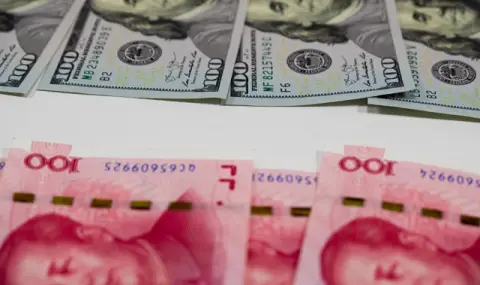The US trade war with China could have a detrimental impact on the euro zone. This was stated by Piero Cipollone, a member of the ECB board, quoted by Reuters.
The ECB has cut borrowing costs five times since June as concerns about growth are starting to outweigh concerns about prices, and investors see at least three more rate cuts this year in an attempt to stimulate an economy struggling to recover from two years of near-stagnation.
We all agree that there is still room for downward adjustment of interest rates, Cipollone said. He stressed that the ECB has almost achieved its target. But higher energy prices and global trade tensions are pulling the ECB in different directions, so there is no point in committing to any concrete action yet, including a widely expected and fully priced cut in March, Cipollone added.
Yet the eurozone economy has not fundamentally changed since December 2024, when the ECB’s forecasts suggested four rate cuts in 2025. The general understanding of where we are going is there, the fundamentals have not changed, so I do not expect a big change in direction. This convergence with the inflation target is consistent with a downward interest rate trajectory, Cipollone noted.
Inflation rose to 2.5% last month, but the ECB forecasts it will fall back to 2% this summer after four years above target.
According to Cipollone, the big uncertainty is U.S. trade policy, and that could hit Europe hard, even before any direct trade barriers in the bloc. He is worried about a full-scale trade war between the U.S. and China, as Beijing owns 35% of the world’s manufacturing capacity.
The U.S. imposed a 10% tariff on all Chinese imports this week, prompting retaliation from Beijing. Restricting access to the U.S. would force China to find other markets and could dump discounted products in Europe, limiting growth and prices, Cipollone said.
He said trade wars could slow economic growth, but not enough to trigger a recession, especially since other parts of the economy are showing resilience. He noted that the labor market is holding up, consumption is likely to recover, construction is strong. He said interest rate cuts are weighing on the economy, and even the industry, which has been in recession for the past two years, is showing signs of bottoming out.
